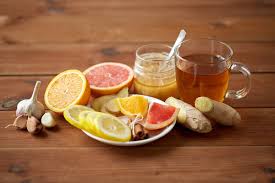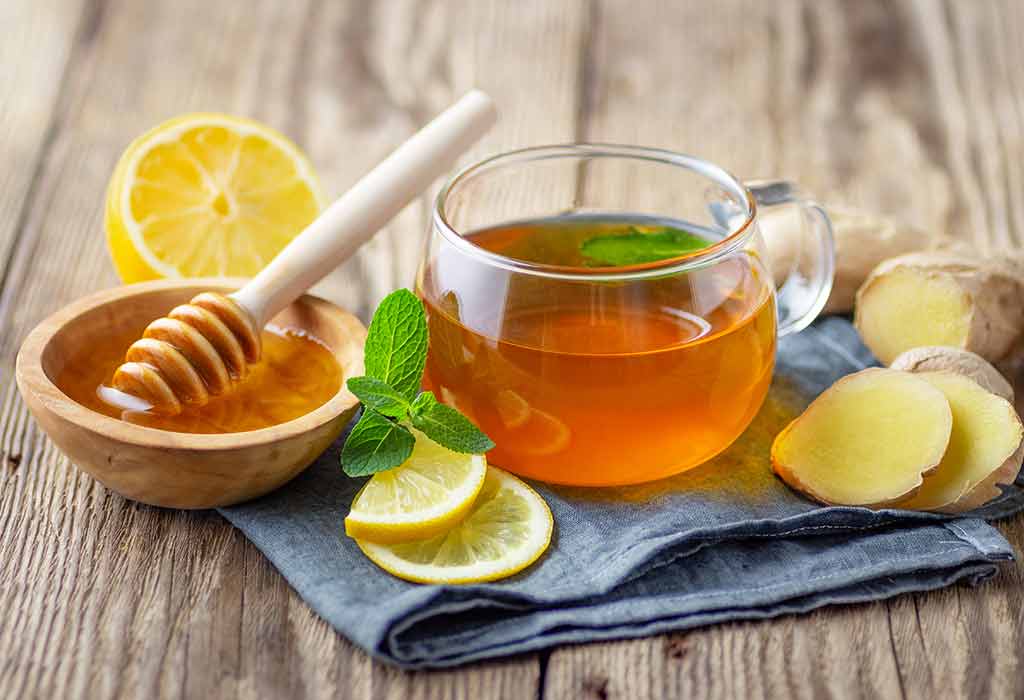Exercise Daily – Allergies can be a nuisance, especially when they strike during your favorite time of the year. The sneezing, itchy eyes, runny nose, and congestion can make life miserable. But did you know that there are natural remedies that can help alleviate these symptoms? Let’s explore 20 effective natural allergy remedies that can bring much-needed relief.
Athletes often face unique challenges when it comes to allergies. Allergic reactions can impact their performance, recovery, and overall health. Utilizing natural remedies can provide relief without the side effects often associated with conventional medications. Here’s a detailed guide on how athletes can alleviate allergies using natural remedies.
Understanding Allergies
Allergies occur when your immune system reacts to a foreign substance, such as pollen, dust mites, or pet dander. This reaction triggers the release of histamines, which cause allergy symptoms. Understanding the root cause of your allergies is the first step in managing them effectively.
Allergies in Athletes
Allergies occur when the immune system overreacts to typically harmless substances, such as pollen, dust, or pet dander. Symptoms can include sneezing, itching, congestion, and even respiratory issues, which can be particularly problematic for athletes who rely on optimal lung function and physical stamina.

Common Allergy Symptoms
- Sneezing
- Itchy, watery eyes
- Runny or stuffy nose
- Nasal congestion
- Coughing
- Fatigue
Why Choose Natural Remedies?
Natural remedies are often preferred because they have fewer side effects than conventional allergy medications. They can provide relief without making you drowsy or causing other unwanted symptoms. Plus, they can be easily integrated into your daily routine.
20 Effective Natural Remedies for Allergies
1. Quercetin
Benefits of Quercetin
Quercetin is a natural flavonoid found in many fruits and vegetables. It acts as a natural antihistamine, reducing the release of histamines and alleviating allergy symptoms.
How to Use Quercetin
You can take quercetin supplements or increase your intake of quercetin-rich foods like apples, onions, and berries.
2. Stinging Nettle
Benefits of Stinging Nettle
Stinging nettle has anti-inflammatory properties that can help reduce the severity of allergy symptoms. It is particularly effective for allergic rhinitis.
How to Use Stinging Nettle
You can drink stinging nettle tea or take it in capsule form.
3. Vitamin C
Benefits of Vitamin C
Vitamin C is a powerful antioxidant that boosts your immune system and is a natural antihistamine.
How to Use Vitamin C
Include more vitamin C-rich foods in your diet, such as oranges, strawberries, and bell peppers, or take a vitamin C supplement.
4. Butterbur
Benefits of Butterbur
Butterbur is known for its anti-inflammatory and antihistamine properties. It can help reduce nasal congestion and other allergy symptoms.
How to Use Butterbur
Take butterbur supplements free from pyrrolizidine alkaloids (PAs), which can be harmful.
5. Saline Nasal Spray
Benefits of Saline Nasal Spray
Saline nasal spray helps to clear nasal passages, reduce congestion, and flush out allergens.
How to Use Saline Nasal Spray
Use a saline nasal spray daily to keep your nasal passages clear and reduce allergy symptoms.
6. Local Honey
Benefits of Local Honey
Consuming local honey can help build your immunity to local pollen, reducing allergy symptoms over time.
How to Use Local Honey
Take a teaspoon of local honey daily, preferably a few months before allergy season.
7. Probiotics
Benefits of Probiotics
Probiotics improve gut health, which can, in turn, boost your immune system and reduce allergy symptoms.
How to Use Probiotics
Include probiotic-rich foods like yogurt, kefir, and sauerkraut in your diet, or take a probiotic supplement.
8. Bromelain
Benefits of Bromelain
Bromelain, an enzyme found in pineapples, has anti-inflammatory properties that can help reduce nasal swelling and congestion.
How to Use Bromelain
Consume fresh pineapple or take bromelain supplements to reduce allergy symptoms.
9. Essential Oils
Benefits of Essential Oils
Essential oils like eucalyptus and peppermint can help open nasal passages and reduce congestion.
How to Use Essential Oils
You can use a diffuser to disperse essential oils in your home, or you can add a few drops to a bowl of hot water and inhale the steam.

10. Apple Cider Vinegar
Benefits of Apple Cider Vinegar
Apple cider vinegar can help reduce mucus production and cleanse your lymphatic system.
How to Use Apple Cider Vinegar
Mix one to two tablespoons of apple cider vinegar in a glass of water and drink it daily.
11. Spirulina
Benefits of Spirulina
Spirulina is a type of blue-green algae that has been shown to reduce inflammation and boost the immune system.
How to Use Spirulina
Add spirulina powder to your smoothies or take it in tablet form.
12. Acupuncture
Benefits of Acupuncture
Acupuncture can help reduce allergy symptoms by balancing the body’s energy and reducing inflammation.
How to Use Acupuncture
Seek out a licensed acupuncturist for regular treatments, especially during allergy season.
Additional Natural Remedies and Tips
13. Herbal Teas
Herbal teas like chamomile and green tea contain natural antihistamines and can help soothe allergy symptoms. Drinking these teas regularly can help reduce inflammation and boost your immune system.
How to Use Herbal Teas
Drink a cup of chamomile or green tea daily. For added benefits, add a spoonful of honey.
14. Omega-3 Fatty Acids
Omega-3 fatty acids found in fish oil, flaxseeds, and chia seeds have anti-inflammatory properties that can help reduce allergy symptoms.
How to Use Omega-3 Fatty Acids
Include more omega-3 rich foods in your diet or take fish oil supplements.
15. Eucalyptus Oil
Eucalyptus oil has anti-inflammatory and decongestant properties that can help clear nasal passages.
How to Use Eucalyptus Oil
Add a few drops of eucalyptus oil to a bowl of hot water and inhale the steam, or use a diffuser to disperse the oil in your home.
16. Diet Adjustments
Certain foods can trigger or worsen allergy symptoms. Identifying and avoiding these foods can help manage your allergies.
Foods to Avoid
Dairy, gluten, and processed foods are common food allergens. To identify any food sensitivities, consider an elimination diet.
17. Stay Hydrated
Drinking plenty of water can help thin mucus and keep your respiratory system clear.
Hydration Tips
Aim to drink at least eight glasses of water a day. You can also include herbal teas and broths in your hydration routine.
18. Air Purifiers
Using an air purifier in your home can help remove allergens from the air, reducing allergy symptoms.
Choosing an Air Purifier
Look for air purifiers with HEPA filters that effectively capture small particles like pollen and dust.
19. Neti Pot
A neti pot is a device used to rinse the nasal passages with a saline solution, helping to clear out allergens and reduce congestion.
How to Use a Neti Pot
Fill the neti pot with a saline solution and pour it into one nostril, allowing it to flow out of the other nostril. Repeat on the other side.
20. Wear a Mask
Wearing a mask, especially during high pollen seasons, can help reduce your exposure to allergens.
Mask Tips
Choose a mask that fits well and is comfortable to wear. Look for masks designed to filter out small particles.

Lifestyle Tips for Managing Allergies
- Keep Training Environments Clean: Regularly clean indoor training areas to reduce dust and mold.
- Shower After Outdoor Activities: Remove pollen from your skin and hair by showering immediately after outdoor exercise.
- Use HEPA Filters: Install HEPA filters in your home and training areas to trap allergens.
- Monitor Pollen Levels: Check daily pollen forecasts and plan outdoor activities when pollen counts are low.
- Wear a Mask: Consider wearing a mask during outdoor activities to reduce inhalation of allergens.
Conclusion
Natural remedies for allergies offer a gentle and effective way to manage symptoms without the side effects of conventional medications. Whether it’s quercetin, stinging nettle, or acupuncture, these remedies can help you breathe easier and enjoy life more. Always consult your healthcare provider before starting any new treatment, especially if you have underlying health conditions.
FAQs – Alleviate Allergies with Natural Remedies
Q: What are the best natural remedies for seasonal allergies?
A: The best natural remedies for seasonal allergies include quercetin, stinging nettle, and local honey. These remedies help reduce inflammation and build immunity to allergens.
Q: Can probiotics help with allergies?
A: Yes, probiotics can improve gut health, boost the immune system, and help reduce allergy symptoms.
Q: How does saline nasal spray help with allergies?
A: Saline nasal spray clears nasal passages, reduces congestion, and flushes out allergens, relieving allergy symptoms.
Q: Is acupuncture effective for treating allergies?
A: Acupuncture can effectively treat allergies by balancing the body’s energy, reducing inflammation, and alleviating allergy symptoms.
Q: How often should I use apple cider vinegar for allergies?
A: You can mix one to two tablespoons of apple cider vinegar in a glass of water and drink it daily to help reduce mucus production and cleanse your lymphatic system.




